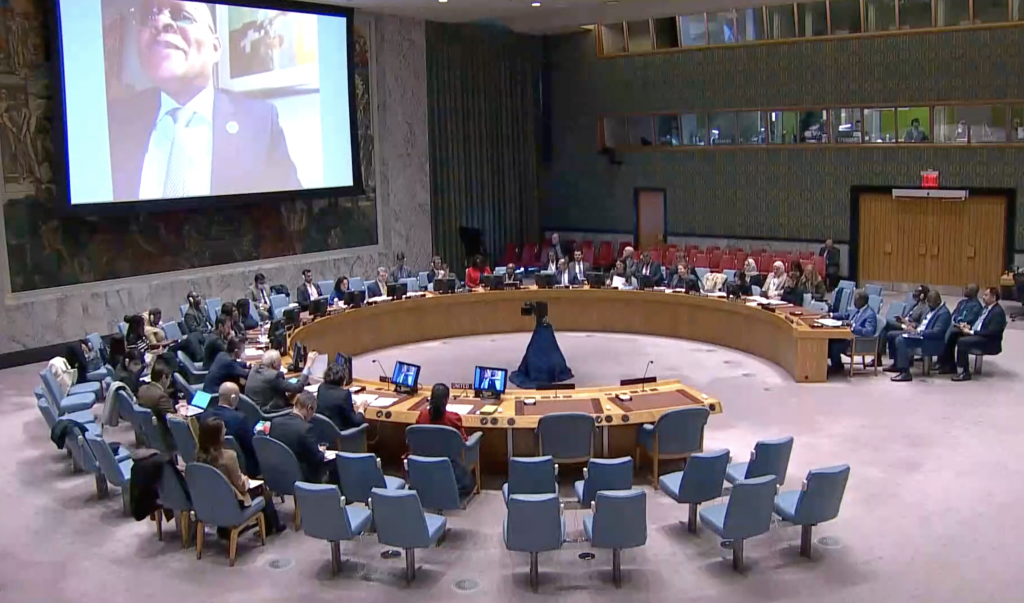Statement by Deputy Permanent Representative Anna Evstigneeva at UNSC briefing on the Central African sub-region
Mme.President,
We welcome Abdou Abarry in his new capacity as the Special Representative of the Secretary-General for Central Africa and thank him for the substantive briefing. We also thank Chair of the ECCAS Commission, Mr. Gilberto da Piedade Verissimo.
Russia unfailingly supports the activities of the UN Regional Office for Central Africa (UNOCA) as an essential tool of preventive diplomacy. We see that the good offices of the Special Representative stand in high demand in the sub-region.
What’s important is that the mediator efforts are accompanied by direct engagement with the sides in the hotspots and coordination with regional mechanisms – the International Conference on the Great Lakes Region and the Economic Community of Central African States.
Central African region is a crucial location in terms of combating terrorism and preventing its spread throughout the continent. We attach particular importance to regional efforts aimed at elaboration of coordinated approaches to addressing this threat. The Regional Multinational Joint Task Force can be regarded as a positive example of this. By various estimates, terrorist activity of ‘Boko Haram’ has somewhat decreased recently. However this group remains one of the main threats to peace and security in Central Africa. Due to “porous” borders, fighters relocate from country to country depending on the overall situation and effectiveness of counter-terrorism measures adopted by the authorities.
Piracy in the Gulf of Guinea is another factor of instability. We see some positive momentum and hope that with the support of the global community, region-wide efforts will effect a lasting solution to the problem of armed robbery at sea in this area, which is crucial in terms of economic operations.
We note that in recent months, some Central African states convened elections of authorities at various levels. We keep track of the developments in Cameroon. The problem of Anglophone provinces dates back to the colonial period. The solution to the longstanding disputes can only be found during negotiations. All sides in Cameroon need to act in a reserved manner and reject violence in all forms. We also follow the situation in Chad, where the process of transitional state-building and implementation of the recommendations of the inter-Chadian national dialogue is underway. We followed the reports about the clashes in October with concern.
We also pay close attention to the developments in the Central African Republic. Given support of the partners, including Russia, the CAR authorities were able to overcome the most difficult phase in the fight against those who tried to achieve an unconstitutional change of power in the country while using armed force. At the same time, in recent months the have been recurring outbreaks of activity of illegal armed formations in northwestern and eastern areas of the CAR, in particular at the border with Sudan and Chad. We will keep assisting Bangui in countering armed groups and expanding state presence throughout the country in the interests of achieving final settlement.
The dire humanitarian situation in the Central African sub-region raises our concern. By expert data, there is a great number of refugees, IDPs, and people in need of humanitarian assistance. It is obvious that Central African states are faced with challenges that have a complex nature. However we remain convinced that when it comes to crisis prevention and conflict settlement, countries of the region must play the key role in these processes given all necessary support of the international community.
Thank you.
